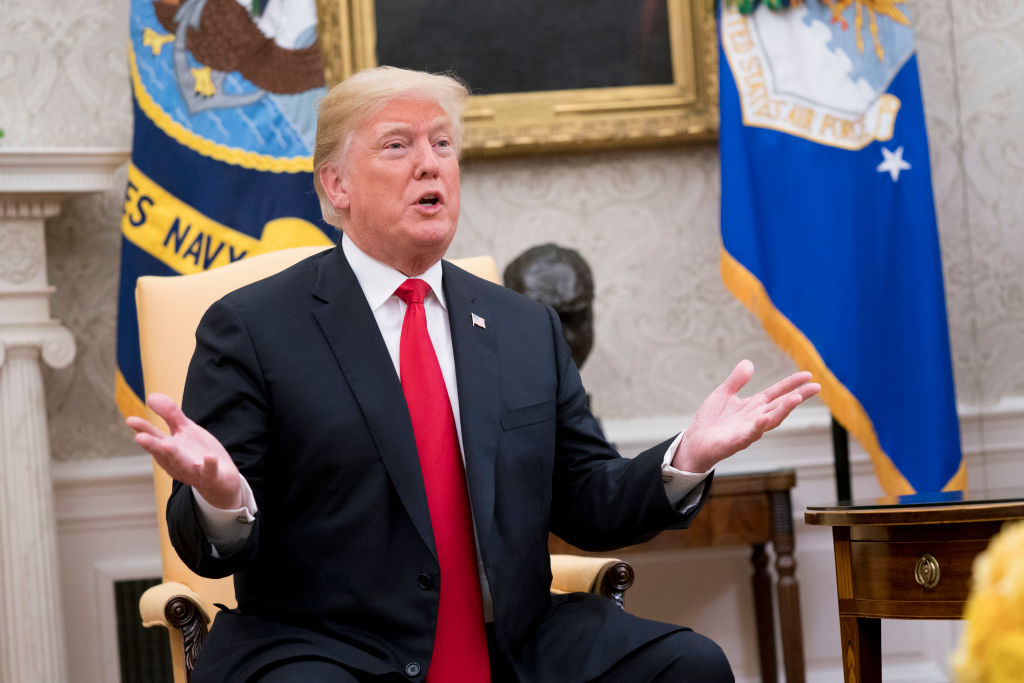On 31st August, in a move celebrated by Benjamin Netanyahu as a ‘blessed change’, the Trump administration announced it would cut all funding to the United Nations Relief and Works Agency (UNRWA).
It was a decision with far-reaching and catastrophic implications: the US has long been the largest individual donor to the UNRWA, which serves millions of Palestinian refugees and their dependents in the Middle East. Despite putting at risk the schooling, healthcare and social services on which these refugees rely, Jared Kushner was dismissive and unapologetic. ‘This agency,’ he said, ‘is corrupt, inefficient, and doesn’t help peace.’
That isn’t the case. The move is a clumsy sweeping aside of the Palestinian right of return, a major sticking point in peace negotiations in the region. The Trump administration aims to force through a lop-sided ‘peace’ deal, and the decision taken in August promises immediate, severe, and tragic consequences. In the Palestinian territories, a humanitarian crisis of vast proportions now looms, job cuts to those who administer aid are certain, and the Arab governments reliant on the UNRWA to take care of the Palestinians to whom they reluctantly give asylum will likely want compensation in return for integrating these refugees. They are not responsible, they say, for the aftermath of the 1948 war.
As the US, once responsible for a third of the UNRWA’s budget, turns its back, it is vital that the vacuum be filled. UNRWA USA, a non-profit operating independently from the main organisation, has reported a ‘tremendous increase’ in funding from the US public, and aims to raise $4 million by the end of the year. Such efforts are commendable and desirable, but these non-profits have neither the clout nor the financial power of nation-states.
In the Middle East, the UAE has announced a $50 million contribution and an extra $15 million for the upcoming school year; Saudi Arabia and Qatar promised to donated $50 million each. Kuwait has announced a combined $2,900,000 contribution, and a handful of private or state-funded foundations in the Gulf have also pledged donations.
But these donations come with a proviso, and a significant one. The Trump administration has announced ‘guidelines’ by which the Gulf countries can donate, and the view of the US is that, in the long-term, the nature of the UN agency must be ‘redefined’.
Even before the US cut its funding to UNRWA, European states were independently and voluntarily increasing their donations. In recent years, the EU has been the second-largest contributor to the agency, pledging more than $142 million in 2017 alone. The recognition of Palestine by a number of European nations suggests a shift in direction on the continent, but without a unified policy, and a unified strategy, independent commitment to providing humanitarian relief to the refugees reliant on the UNRWA can only go so far.
Clearly there is broad sympathy for the cause, but unless the vocal support given in Ireland or Spain or the UK evolves into a broader European commitment, the EU risks leaving the fate of the Palestinians in the hands of Gulf states freighted with their own problems. Benjamin Netanyahu has been quietly building relationships with the countries of Central and Eastern Europe in an apparent effort to block wide European support for Palestine. Regional tensions, violent spasms and security concerns––to say nothing of the donation ’guidelines’ imposed on these countries by the US––make the support of the Gulf states unreliable. Jordan, Lebanon and Syria, meanwhile, are unlikely to integrate Palestinian refugees without compensation.
The EU, which in a statement acknowledged the ‘substantial gap’ left by the US, must play a major role in the future of the UNRWA or risk letting it collapse into inconsequence and dysfunction. Benjamin Netanyahu has said it is ‘necessary to abolish the refugee institution’. His former national security adviser said that in the long run, closing the UNRWA was ‘no question, the right move to do.’ Now the Trump administration has embraced the Israeli narrative wholesale, the issue of funding the UNRWA cannot be left to resolve itself.
The EU, at a time when its power is perceived to be waning, must take a leadership role. As for other sympathetic international players, such as New Zealand, Canada and the UK—soon to leave the EU—they must look for ways to contribute in ever-more productive ways to the international effort, and act on the conclusions drawn at the United Nations General Assembly discussions. The consequences of failing to do this cannot be overstated. Millions will suffer because of the heavy-handed tactics of the Trump administration and its allies in the Israeli government, and Europe cannot stand by and watch.
Tarek Hamoud is Executive Director of the Palestinian Return Centre (PRC)






Comments